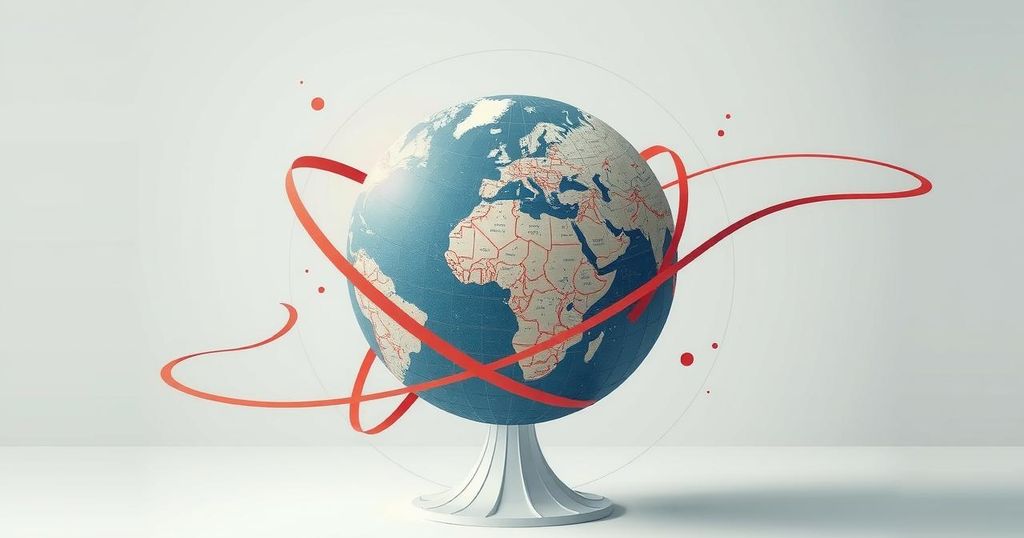World news
ASIA, DIPLOMACY, DIRIYAH PALACE, DONALD TRUMP, EUROPE, EUROPE/ASIA, EVELYN HOCKSTEIN, FAISAL BIN FARHAN AL SAUD, FLA, INTERNATIONAL RELATIONS, MAR - A - LAGO, MARCO RUB, MARCO RUBIO, MIKE WALTZ, MO, MOSAAD BIN MOHAMMAD AL - AIBAN, MOSCOW, NORTH AMERICA, PALM BEACH, POOL PHOTO, PRINCE, RIYADH, RUBIO, RUSSIA, RUSSIAN INVASION OF UKRAINE, SAUDI ARABIA, SERGEI LA, SERGEI LAVROV, SERGEY LAVROV, STEVE WITKOFF, TRUMP, U. S, U. S. MIDDLE EAST, U. S. SECRETARY, UKRAINE, UNITED STATES, US, VLADIMIR PUTIN, WAR, WASHINGTON, YURI USHAKOV
Lena Nguyen
0 Comments
U.S. and Russia Engage in Talks on Ukraine Amidst Diplomatic Strain
The United States and Russia have initiated discussions to resolve the Ukraine conflict and restore diplomatic relations. The talks, led by U.S. Secretary of State Marco Rubio and Russian Foreign Minister Sergey Lavrov, resulted in plans to reopen embassies. President Trump suggested Ukraine should be accountable for the conflict’s inception, raising concerns among allies. As negotiations progress, Ukraine’s inclusion remains a crucial topic, with implications for international relations and security.
In a significant shift in American foreign policy, the United States and Russia have commenced discussions aimed at resolving the conflict in Ukraine and enhancing bilateral diplomatic and economic relations. The meeting in Riyadh, led by U.S. Secretary of State Marco Rubio and Russian Foreign Minister Sergey Lavrov, concluded with an agreement to reopen their embassies in each other’s capitals. However, notable was Ukraine’s absence from these talks, prompting its allies to seek inclusion in future negotiations.
This high-level engagement marked the most extensive interaction between U.S. and Russian officials since the commencement of the conflict in Ukraine nearly three years ago. President Trump suggested that Ukraine should bear some responsibility for the conflict, indicating it should have made concessions to Russia prior to the escalation of hostilities. His comments have raised concerns regarding the impact on the transatlantic alliance and America’s standing with Ukraine and its NATO allies.
The discussions resulted in a commitment to restore diplomatic relations that have suffered since Russia’s military actions began in 2022. Both countries agreed to appoint new ambassadors and create teams dedicated to addressing the operational challenges facing their diplomatic missions. Despite ongoing tensions, officials acknowledged the necessity of engaging diplomatically to facilitate peace negotiations.
The participating delegations also agreed to establish high-level working groups aimed at exploring ways to negotiate an end to the conflict. Discussion topics are expected to involve territorial concessions and security guarantees. Importantly, Russia reiterated its refusal to accept any NATO troops as peacekeepers in Ukraine, emphasizing that Ukraine’s NATO ambitions present security concerns for Moscow.
Although Ukraine was neither invited nor represented in these talks, U.S. officials assure that it will not be excluded from future negotiations. They emphasized the importance of consulting Ukraine and European partners as negotiations progress. However, Zelenskyy expressed dissatisfaction at being omitted, initially canceling a planned visit to Saudi Arabia in protest.
In addition to diplomatic efforts, the dialogue included discussions about potential sanctions relief for Russia, contingent on concessions from both sides. Rubio stated that no agreements regarding sanctions are imminent, but they may be necessary for any conflict resolution. If successful negotiations occur, there may be opportunities for U.S.-Russian cooperation on broader global issues, including energy projects.
The recent talks between U.S. and Russian officials signify a pivotal moment in addressing the Ukraine conflict and restoring diplomatic ties. While discussions have commenced, the exclusion of Ukraine raises questions about the fairness of the negotiation process. As both nations navigate the complexities of restoring relations and discussing potential concessions, the implications of these talks could reshape international alliances and influence the geopolitical landscape. Continued dialogue remains crucial to achieving a sustainable resolution in Ukraine.
Original Source: apnews.com




Post Comment